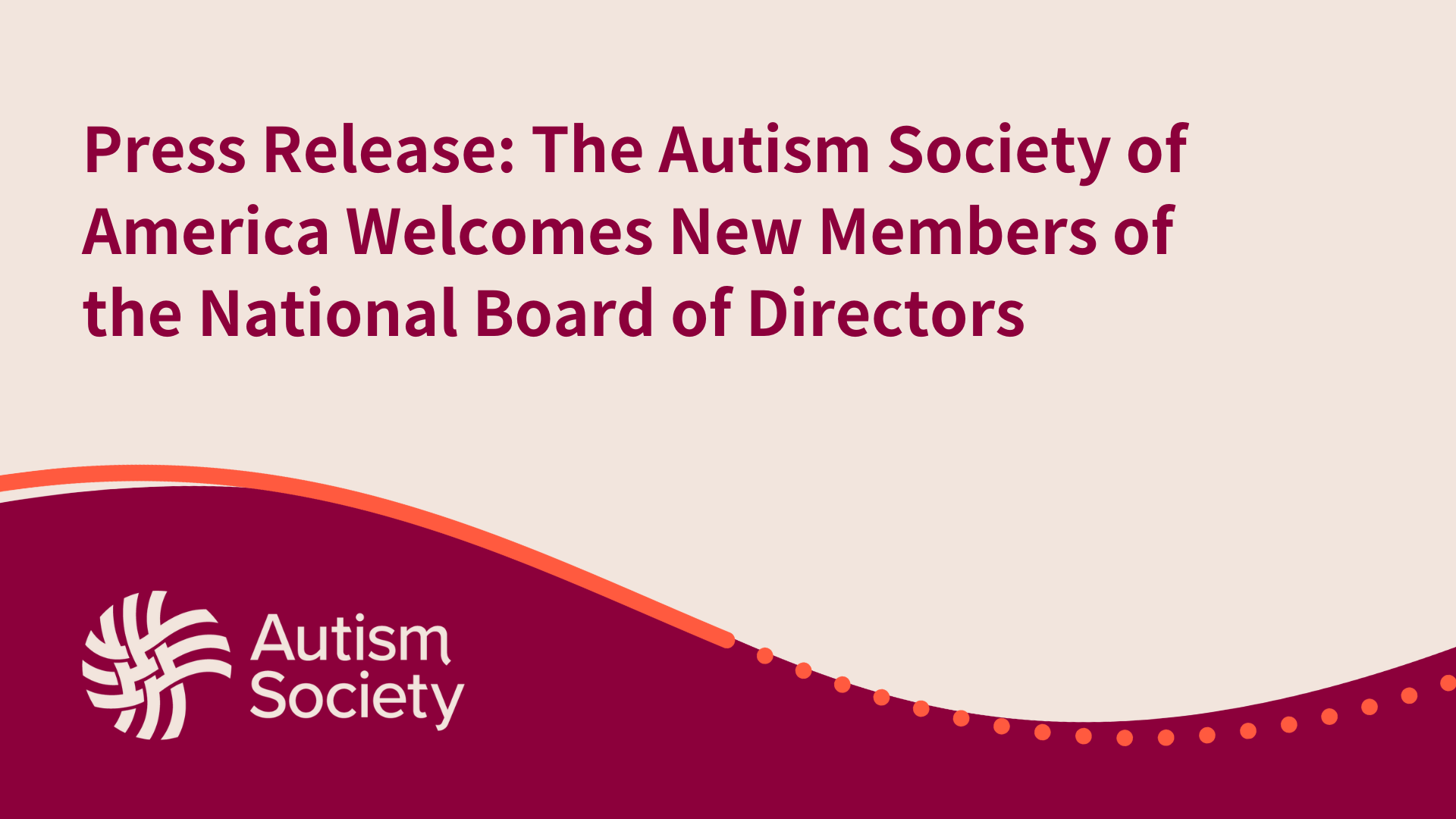
In this issue of Capitol Connection, Congress is on recess, but constituents can contact their Members of Congress in their home states. The Autism CARES Act must be reauthorized by September 30th. Use the Autism Society’s Action Center to educate your Members of Congress about the importance of continuing this law.
Autism CARES Act Reauthorization Advances in Congress
The House Energy and Commerce Subcommittee on Health has unanimously passed a bill (22-0) to reauthorize the Autism CARES Act (HR 7213). This reauthorization aims to enhance the existing law by increasing research funding to support individuals with complex medical and behavioral needs, including those with self-injurious behaviors. Additionally, it emphasizes improving communication supports for Autistic individuals and aims to increase the number of developmental-behavioral pediatricians available to assist families.
The bill now moves to the full House Energy and Commerce Committee for consideration. The Consortium for Constituents with Disabilities (CCD) Autism, Developmental Disabilities, and Family Support Task Force sent a letter to all House Members, urging support for this vital legislation. Moreover, the Autism Society issued an Action Alert to encourage members of Congress to back the bill. To date, over 1,000 letters have been sent to Congress in support of this critical initiative. The Senate has not yet introduced a companion bill.
FY 2025 Appropriations Update
On May 15th, House Appropriations Committee Chairman, Tom Cole (R-OK) released funding allocations for the 12 appropriations subcommittees. Working under an overall total of about $1.6 trillion, the levels would boost defense budgets by about 1 percent in the fiscal year that begins in October, while cutting non-defense funding by roughly 6 percent. Those allocations are far lower than Senate leaders in both parties are seeking. Similar to last year’s process, this difference sets up another months-long negotiation that will likely not be finished before the November election. This means final funding levels will have to be set by a “lame duck” session of Congress. Of the 12 annual appropriations bills, the Labor, Health and Human Services, and Education and the Housing and Urban Development bills contain most of the programs important to people with Autism and other disabilities. The dates set for House markup for those two bills are June 27th and 28th.
Comments on FDA Electric Shock Ban
The Autism Society submitted comments to the Food and Drug Administration (FDA) on their Proposed Ban on Electrical Stimulation Devices. The FDA reissued a proposal to ban shock devices used to modify behavior after Congress passed legislation clarifying the agency’s authority to do so. The devices are used at the Judge Rottenberg Center in Massachusetts, the only institution known to continue to do so. The Autism Society’s comments urge the FDA to finalize the Rule as quickly as possible due to its inhumane and extremely harmful nature. The CCD also submitted comments with over 40 national disability organizations signing on, including the Autism Society.
Aviation Accessibility Amendment
Several provisions that will improve the accessibility of air travel for individuals with disabilities and their caregivers were included in a bipartisan bill to reauthorize the Federal Aviation Administration. One amendment led by Senator Maggie Hassan (D-NH) mandates the installation of universal changing stations in all passenger terminals of U.S. airports, beginning in fiscal year 2030. These stations must meet comprehensive accessible design standards established by the United States Access Board, ensuring that they are accessible and usable by individuals with disabilities. This initiative is symbolic of a commitment to enhancing accessibility in public spaces and promoting dignity and comfort for travelers. The Autism Society supports these amendments. The bill was signed into law on May 16th.
SSA Announces Reforms to Ease Burden of SSI and Social Security Overpayments
The US Social Security Administration (SSA) has recently announced several important changes designed to lessen the burden of Supplemental Security overpayments on beneficiaries. These updates will provide financial relief and make it easier for individuals to manage and resolve unintentional overpayment issues. Starting March 25th, 2024, the SSA will set a default withholding rate of 10 percent for Social Security overpayments. Additionally, SSA will now readily approve repayment plans extending up to five years, which offers an easier and longer-term repayment option. Further, the threshold for the simplified waiver process will increase from $1,000 to $2,000. Lastly, the SSA is working on reforming its guidance and procedures to shift the burden of proof for overpayment waivers away from individuals. The Autism Society supports these long-overdue improvements.
Disability Reproductive Equity Resolution
Congresswoman Pressley (D-MA), along with Senators Duckworth (D-IL) and Murray (D-WA), have introduced a resolution to strengthen equitable access to reproductive and sexual healthcare for people with disabilities. The resolution designates May 23rd as “Disability Reproductive Equity Day” as a way of bringing awareness to systemic barriers and discrimination faced by individuals with disabilities. According to the press statement, this initiative aims to affirm commitment on the part of Congress to address inequities and improve access to healthcare for people with disabilities.
Accessibility in Schools
The Department of Education’s Office for Civil Rights (OCR) shared a YouTube video on ways to increase accessibility in school facilities for individuals with disabilities, including students, family members, teachers, and staff. The webinar, developed by the Department of Justice’s Civil Rights Division in consultation with OCR, lays out frequent accessibility barriers found in schools and ways to address them. A press release describing the webinar and a video link is available on the Justice Department’s website. This video can be used for state advocacy to help make public schools more accessible for students with Autism and other disabilities.
Justice Corner
The Justice Department’s investigation into Nebraska’s Behavioral Health System
The Justice Department has concluded, through investigation, that Nebraska’s behavioral health system violates the Americans with Disabilities Act (ADA) by unnecessarily institutionalizing people with serious mental illness (SMI) in assisted living and day program facilities. The investigation found that with appropriate community-based services, individuals with SMI can live independently and work in integrated settings. However, Nebraska currently restricts access to these crucial services, limiting options to institutions and unemployment for many. The Department has urged Nebraska to expand its community-based services and provide supported employment to individuals with SMI.
Share:





